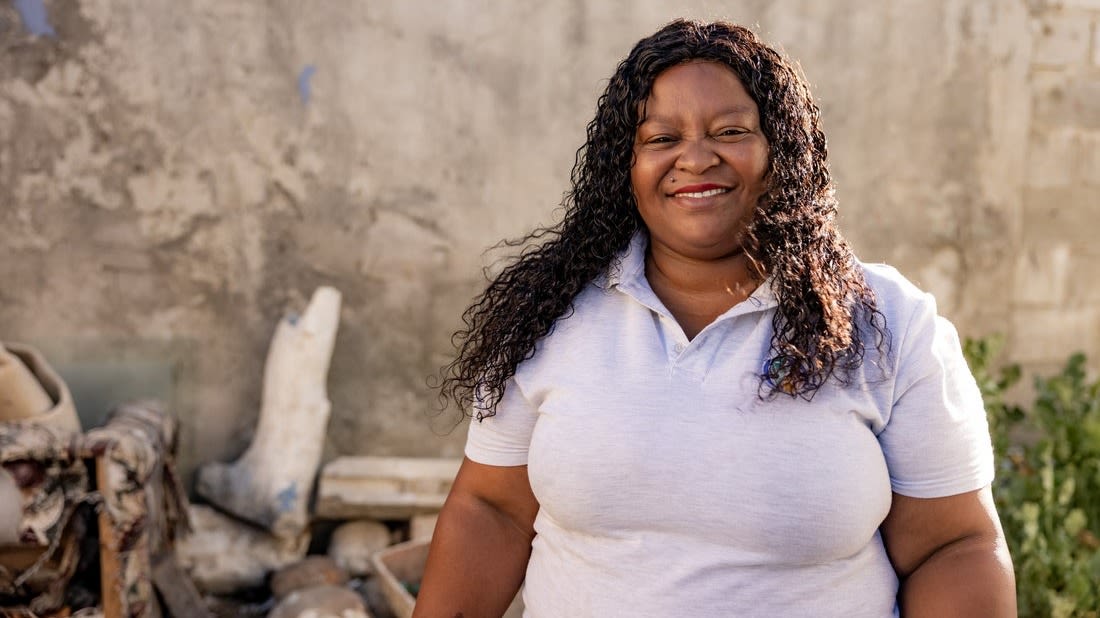
This is the first of a series of weekly blogs to share what we’ve learnt about the impact of Covid-19 on the organisations we fund, and how we as funders can support them.
This first instalment focuses on Red Shed - Comic Relief’s unique fund dedicated to looking at new ways of financing social change through the use of repayable finance. Watch this space for further editions, covering topics such as the role of learning networks for organisations struggling with Covid-19, and how the social tech sector can help combat this crisis.
What a difference a few weeks make. We have seen the impact of Covid-19 hit the charity and social enterprise sector hard, leading to mass closures, drastic reductions in funding and a heightened level of uncertainty on when things will return back to ‘normal’. It has been heartening to see some of the responses from the social investment sector whether it is organisations such as Good Finance putting together resources(opens in new window) and marshalling sector responses to the crisis(opens in new window), or the work that Big Society Capital is doing to influence the government into putting in place additional liquidity to support the sector(opens in new window).
Here at Red Shed we have spent the past few weeks speaking with our investees and seeing what we can do to support them.
The following is some of what we have learnt over the past few weeks, as well as some thoughts about the implications Covid-19 will have on the social investment sector going forward.
Our investees are a resilient and inspirational bunch
It goes without saying that the impact on our investees has been extremely difficult. Whether it has led to temporary closure of activities, a spike in demand for services or massive operational disruption, we have been in awe of the resilience and drive of our investees during this period (a testament to the wider charity and social enterprise sector at this moment in time).
Examples include:(opens in new window)
Luminary Bakery(opens in new window) were looking at new ways to adapt their business during this time through the use of deliveries (which they had to unfortunately cease) and new ways to provide support to the women it works with (through the use of digital tools).(opens in new window)
RefuAid(opens in new window) are doing fantastic work to fast-track refugee doctors(opens in new window) on its books to work in the NHS at a time of great need and even having its work recognised in Parliament(opens in new window)
Some of its portfolio companies in the Fair By Design Fund(opens in new window) have become exemplars of ethical tech solutions with their approach to safeguarding the UK working population and gig economy workers, through tailored support or additional app functionality (e.g. Wagestream and SteadyPay)
This clearly shows the important role that charities and social enterprises will have over the coming months and year to support the most vulnerable in society as we look to rebuild.
The time for flexible and patient funding is now here
Red Shed is currently looking at how we might need to amend some of our investment agreements to support our investees. This is something taking place across the sector as social investors provide repayment holidays from 3 months to a year. This is a great step and very important to support those organisations that have been hit hard by the crisis.
However, there is a debate that must be had around the type of financing available in the sector and its current debt-heavy make-up. In a time where contracts are being cut, customers are no longer there and a prolonged economic recession seems likely, the social investment sector really needs to look at whether a debt heavy approach is suitable in such an environment.
It is welcome to see the work Big Society Capital is doing around getting in government funding support(opens in new window) and will be interesting to see whether such funding will be structured as debt or more patient investment structures. But, as Andrew O’Brien from SEUK rightly pointed out in his blog(opens in new window), cheaper loans, blended finance and repayable grants will be needed at this time to support the social sector.
The response needs to work for social organisations and not just investors
The likelihood is that the social investment sector will see write-offs and some funds will end up with a lower return – at Red Shed we are more than aware that this could hit the economics of our portfolio.
While there has been a great swell of activity around support of social organisations from investors, we need to make sure that charities and social enterprises are front and centre of any response. This means looking at the structure of investment being provided, how fast we can get money out to organisations and investors making sacrifices when it comes to returns during this period.
It is understandably a period where social investors and their respective committees may be wary due to the increase in risk, but this is something that the sector needs to look beyond if we are to come out of this period with strong foundation to rebuild society.
To sum it up - this is not a normal period and therefore the current playbook needs to be torn up.
Investors need to embrace the unknown
We are now in an unprecedented moment where short-term planning has gone from months to weeks with no real sense of what the impact on our economy and society will be in the longer term. This was eloquently captured by Mark Simms, CEO of homeless charity P3 on an article he wrote for Pioneers Post(opens in new window) around how P3 is settling into the fact that there is no normal anymore.
For some social organisations looking at how they adapt and pivot from this moment, they will need the right funding and support to be able to do so. However, even they don’t know what that means in terms of numbers and the journey to get there. Can we honestly expect them to produce a two-year cashflow forecast for such a moment?
As a result, social investors will need to get more comfortable with not having all the information at hand in order to make decisions and to embrace the unknown. This will require us having to put more trust into social organisations and really addressing the current power balance when it comes to the social investment sector.
The increased importance of the work started by the Diversity Forum
We have been in recessionary periods before and what evidence and past experience has shown is that marginalised communities and minority groups that will be hit hardest.
Therefore, social investment will need to think about how best it can support such communities and ensure its investment is able to reach charities and social enterprises that are led by those from marginalised and disadvantaged backgrounds during this period and beyond. The Diversity Forum(opens in new window) was set up to look at such issues and has already highlighted the gaps that exist within the sector on this issue. Its work is now needed more than ever, with some real opportunity to influence radical and meaningful change on this issue.
We wanted to share this blog to provide a platform to our investees who are operated by people that are doing their best to work with vulnerable groups and keep their organisations going. The response from the social investment sector has been admirable and it is clearly being driven by individuals working around the clock to support social organisations as best they can.
This is a defining period for the social investment sector and some would say a ‘make or break’ moment. Whatever happens, it is certainly the case that we are entering a ‘new normal’ and with it brings a moment to make some radical change to the sector.
If you’re interested in finding out more about Comic Relief’s social investment work contact Amir at a.rizwan@comicrelief.com(opens in new window)


